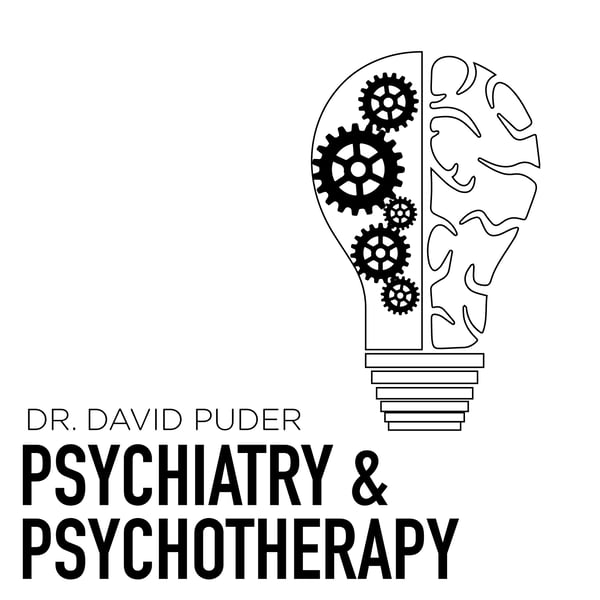Schizophrenia with Dr. Cummings: Controversies, Brain Science, Crime, History, Exercise, Successful Treatment
Psychiatry & Psychotherapy Podcast
David J Puder
4.8 • 1.3K Ratings
🗓️ 6 March 2018
⏱️ 57 minutes
🧾️ Download transcript
Summary
In this episode, Dr. Puder addresses the fascinating realm of schizophrenia with Dr. Cummings, a previous guest in the show. Dr. Cummings is a psychiatrist with a wealth of experience from working at Patton State Hospital in California, one of the biggest forensic hospitals in the world.
-Defining Schizophrenia
-Living with Schizophrenia and Perception of Reality
-Are Negative Symptoms in Schizophrenia Precipitated by Medications?
-Emil Kraepelin, and the Early Studies on Schizophrenia
-The Pathology, Biology, and Genetics of Schizophrenia
-Cannabis Use and Risk For Schizophrenia
-The Loss of Brain in Schizophrenia
-Counter-arguments Against Robert Whitaker’s “Anatomy of an Epidemic”
-Schizophrenia Prevention in High Risk Population
-Australian Study on Children of Schizophrenic Parents
-Crime, Violence, Mass Shootings and Schizophrenia
-Medical Management of Schizophrenia
-1st Break Psychosis
-Long-acting Injectable Antipsychotics in Early Illness
-Medication Adherence
-Exercise, Lifestyle, Diet Optimization
For more notes on this episode, links to articles, visit our website:
Join David on Instagram: dr.davidpuder
Twitter: @DavidPuder
Facebook: DrDavidPuder
Assistant Producer: Arvy Wuysang
Editor: Trent Jones
Transcript
Click on a timestamp to play from that location
| 0:00.0 | Welcome to the Psychiatry and Psychotherapy Podcast. The podcast to help you in your journey |
| 0:06.0 | towards becoming a wise, empathic, genuine and connected mental health professional. |
| 0:11.0 | I'm your host, Dr. David Puder, a psychiatrist who splits his time practicing psychopharmacology, |
| 0:17.0 | individual and group psychotherapy, medical director of a day treatment program, |
| 0:21.0 | medical education research, and teaching residents and medical students. |
| 0:30.0 | Okay, so I am back here, actually, at Patton State Hospital with Dr. Cummings, |
| 0:40.0 | and today we're going to be talking about schizophrenia. We're first going to go over, you know, |
| 0:45.0 | what is schizophrenia, where characteristic of the hallucinations, delusions, |
| 0:50.0 | the negative symptoms of schizophrenia. How do you differentiate this from other things? |
| 0:55.0 | You know, how do we make sense of the different environmental factors that increase the rate of schizophrenia? |
| 1:03.0 | We're going to look at the why of schizophrenia, the genetic influences, the brain changes. |
| 1:10.0 | We're going to look at the rates of crime in schizophrenic patients and, you know, |
| 1:18.0 | do people with mental illness commit a lot of crimes? Do they? Are they responsible for a lot of the violent crimes going on? |
| 1:24.0 | We'll also talk about medications and discuss some of the controversy over, you know, |
| 1:30.0 | is it good to leave someone on medications long term for schizophrenia? |
| 1:34.0 | We'll talk about a little bit on the research that's out there on long term studies, |
| 1:41.0 | and if it is a good idea to, you know, treat someone inevitably or, I mean, not inevitably, |
| 1:48.0 | but continuously, and how to best sort of optimize someone's long-term trajectory with schizophrenia. |
| 1:56.0 | So I'm here with Dr. Cummings. |
| 1:59.0 | Okay, schizophrenia is essentially a cluster or spectrum of illnesses that are related to each other genetically |
| 2:10.0 | that are characterized at their heart by psychotic symptoms, psychosis being defined as a loss of ability to test reality. |
| 2:23.0 | All of us, as we get sensory input, kind of automatically in the background, |
... |
Please login to see the full transcript.
Disclaimer: The podcast and artwork embedded on this page are from David J Puder, and are the property of its owner and not affiliated with or endorsed by Tapesearch.
Generated transcripts are the property of David J Puder and are distributed freely under the Fair Use doctrine. Transcripts generated by Tapesearch are not guaranteed to be accurate.
Copyright © Tapesearch 2025.

